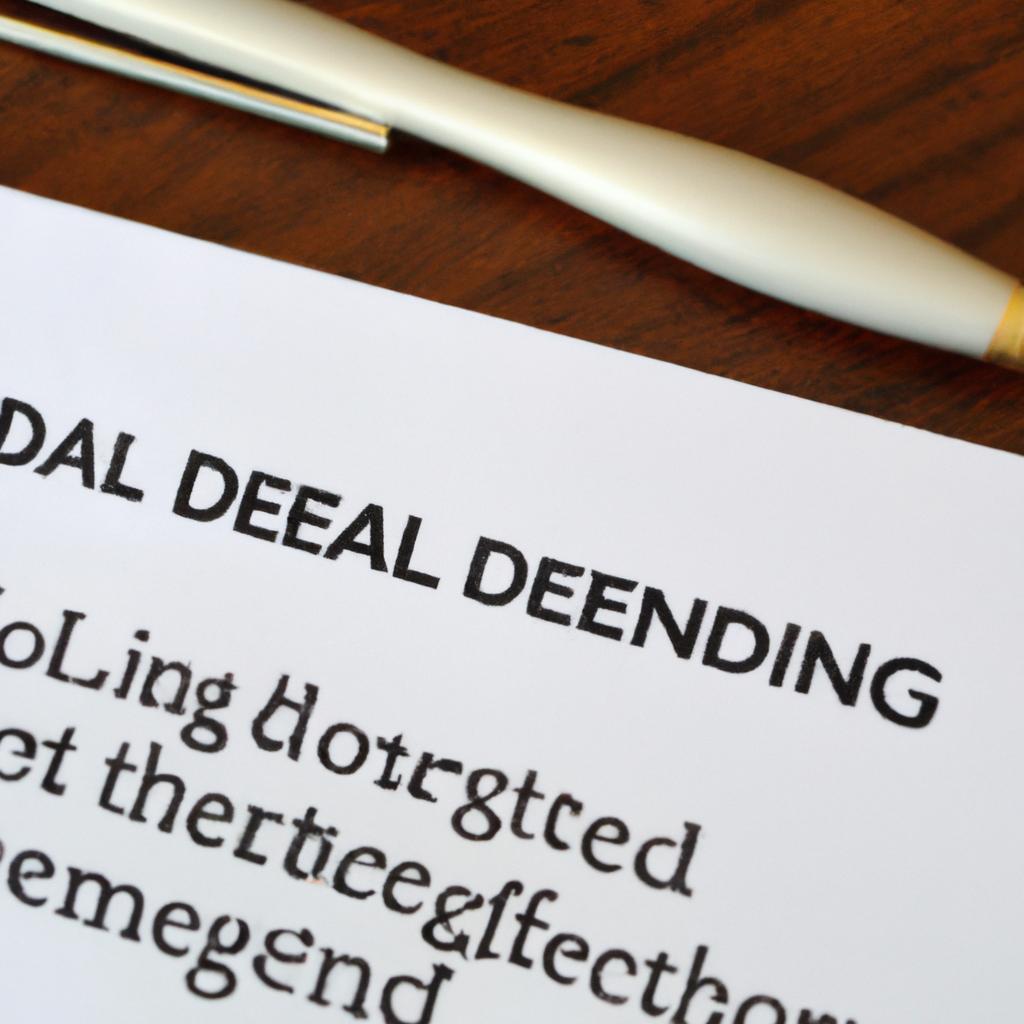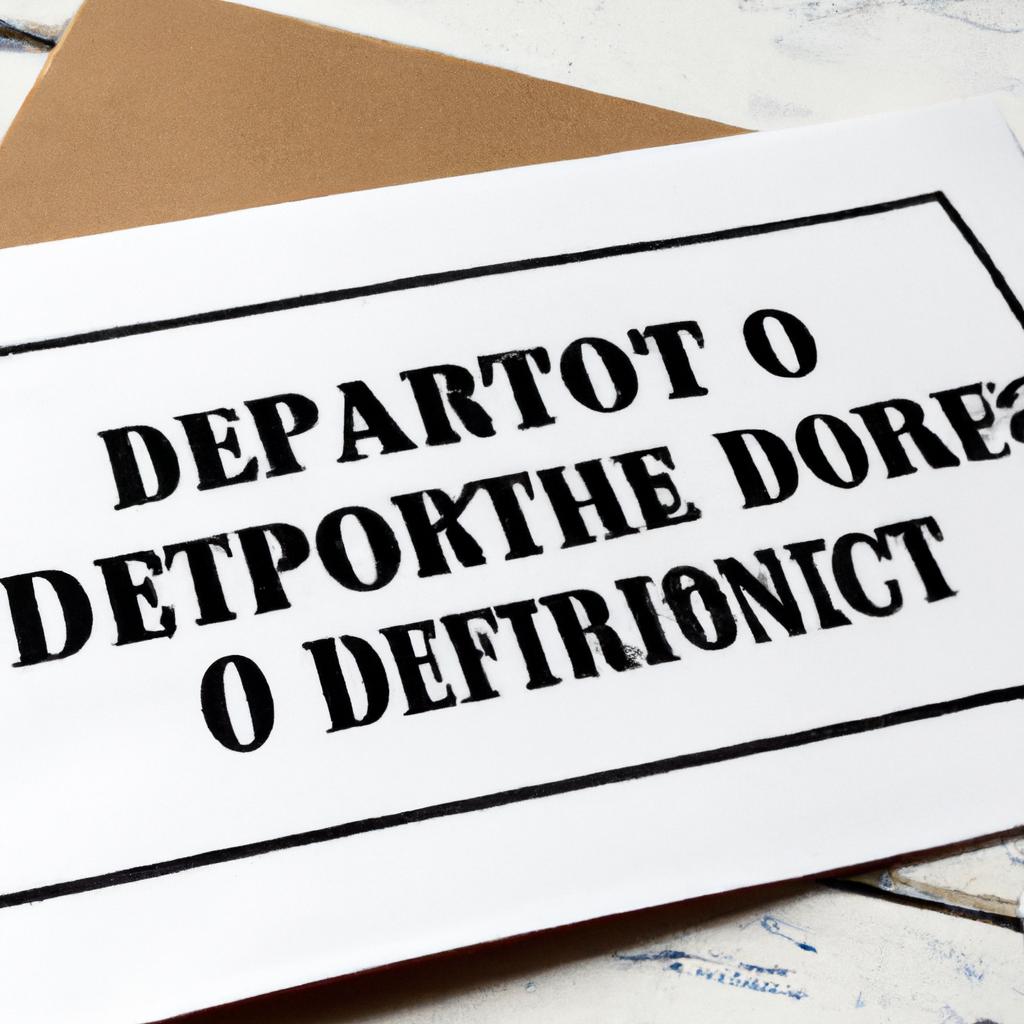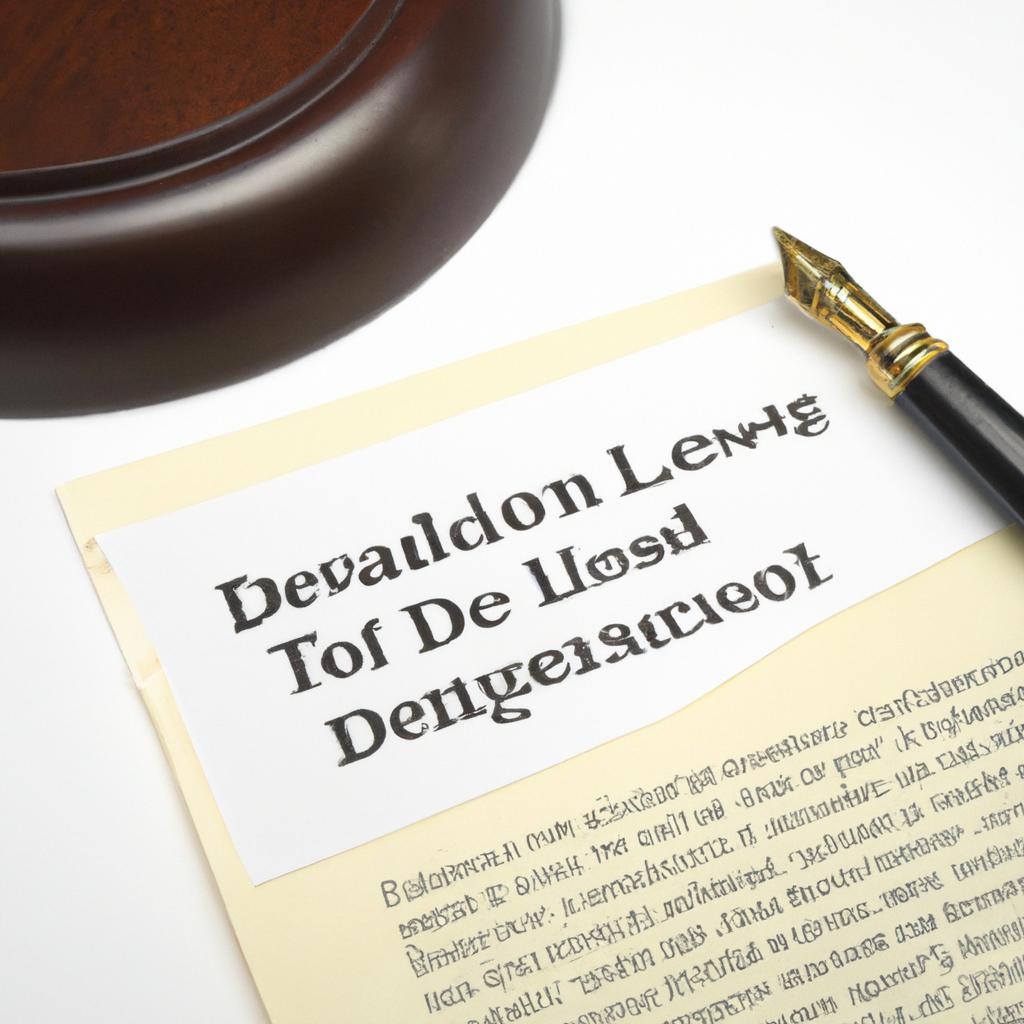In the intricate web of property ownership, the inclusion of unwanted individuals on a deed can pose a significant challenge. As experienced legal professionals at Morgan Legal Group, based in the heart of New York City, we understand the complexities involved in navigating the process of removing someone from a deed. From untangling co-ownership disputes to executing seamless transfers of title, our expertise in estate planning, probate, elder law, Wills, and trusts equips us to guide you through the intricacies of altering property ownership. Join us as we illuminate the steps and considerations involved in removing an individual from a deed, ensuring a smooth and legally sound transition in your property holdings.
Removing Someone from a Deed: Understanding the Legal Process
When it comes to removing someone from a deed, it is important to understand the legal process involved. One common method is through a quitclaim deed, where the individual voluntarily gives up their ownership rights to the property. This can be a straightforward process, but it is essential to follow the proper legal procedures to ensure that the transfer is valid.
Another option is through a court-ordered partition, where a judge mandates the division of the property. This can be a more complex and time-consuming process, as it involves legal proceedings and court intervention. It is crucial to consult with a knowledgeable attorney to guide you through the process and ensure that your rights are protected throughout the removal of someone from a deed.

The Importance of Consenting Parties in Deed Transfers
In order to remove someone from a deed, it is essential to understand the importance of all parties consenting to the transfer. Without the consent of all parties involved, the deed transfer may not be legally binding. This is why it is crucial to follow a proper process when removing someone from a deed to ensure that all parties are in agreement.
One method to remove someone from a deed is through a quitclaim deed. A quitclaim deed is a legal document that allows for the transfer of interest in a property from one party to another. By using a quitclaim deed, the party who wishes to be removed from the deed can relinquish their ownership rights without involving the other parties. It is important to consult with a legal professional, such as the experienced lawyers at Morgan Legal Group, to ensure that the proper steps are taken to complete the removal process successfully.

Navigating the Complexities of Deed Modification
When it comes to , one common issue that many individuals face is how to remove someone from a deed. This process can often be intricate and require legal expertise to ensure that it is done correctly and legally. There are several steps that need to be followed in order to successfully remove someone from a deed, and it is important to have a clear understanding of the legal implications involved.
<p>One option for removing someone from a deed is through a quitclaim deed, which is a legal document that allows for the transfer of ownership rights from one party to another. Another option is through a court-ordered partition, which involves dividing the property amongst the owners. Ultimately, consulting with a knowledgeable legal professional, such as the attorneys at Morgan Legal Group in New York City, is essential in order to ensure that the deed modification process is executed properly and in compliance with the law.</p>
Seeking Legal Guidance to Safely Remove Someone from a Deed
When it comes to removing someone from a deed, seeking legal guidance is crucial to ensure the process is done safely and effectively. At Morgan Legal Group, we specialize in estate planning and have extensive experience in navigating the complexities of property ownership. Our team of attorneys can provide you with the expertise needed to successfully remove someone from a deed while protecting your interests.
Through our personalized approach, we will carefully review your specific situation and develop a tailored strategy to address your needs. We will guide you through the legal requirements and procedures involved in removing someone from a deed, ensuring that all necessary steps are taken to properly execute the transfer of ownership. Trust Morgan Legal Group to handle your deed removal with the professionalism and expertise you deserve.
Q&A
Q: Can I remove someone from a property deed?
A: Yes, it is possible to remove someone from a property deed, but the process can be complex and may require legal assistance.
Q: What are the reasons for removing someone from a deed?
A: Common reasons for removing someone from a deed include divorce, property disputes, or to remove a co-owner who no longer has an interest in the property.
Q: How can I remove someone from a deed without their consent?
A: In some cases, it may be possible to remove someone from a deed without their consent through a legal process known as a partition action. However, this process can be time-consuming and may require court intervention.
Q: Can I remove someone from a deed using a quitclaim deed?
A: Yes, a quitclaim deed can be used to remove someone from a property deed. However, it is important to understand that a quitclaim deed does not provide any guarantee of ownership rights and may not be appropriate in all situations.
Q: What steps should I take to remove someone from a deed?
A: To remove someone from a deed, you will need to prepare a new deed transferring ownership from the individual you wish to remove. This deed will need to be signed and notarized, and may need to be filed with the appropriate government agency.
Q: Are there any tax implications to removing someone from a deed?
A: Depending on the circumstances, there may be tax implications to removing someone from a deed, such as gift tax or capital gains tax. It is recommended to consult with a tax professional before making any changes to a property deed.
Concluding Remarks
In conclusion, removing someone from a deed can be a complex process but with the right guidance and knowledge, it can be done effectively. Whether it’s through a buyout agreement, a quitclaim deed, or a court-ordered partition, understanding your options and taking the necessary steps is crucial. Remember to always seek legal advice and consult with all parties involved to ensure a smooth and fair outcome. Removing someone from a deed may not be easy, but with the right approach, it is possible. Thank you for reading and best of luck in your property ownership journey.


